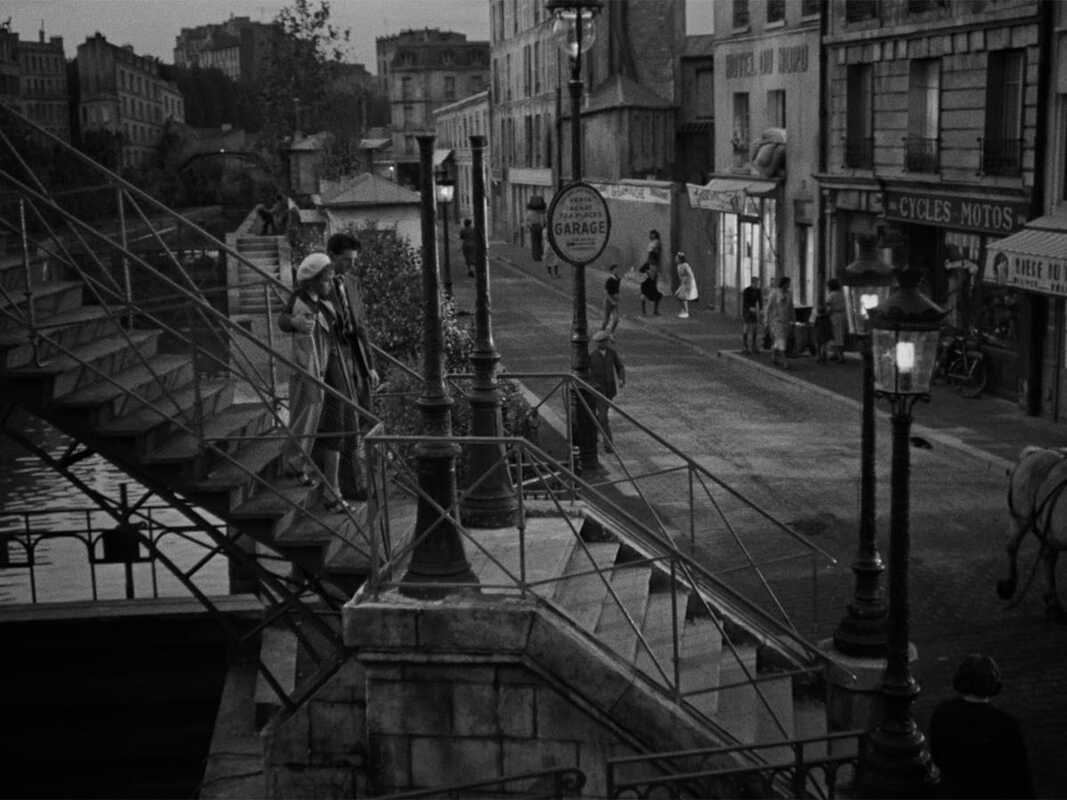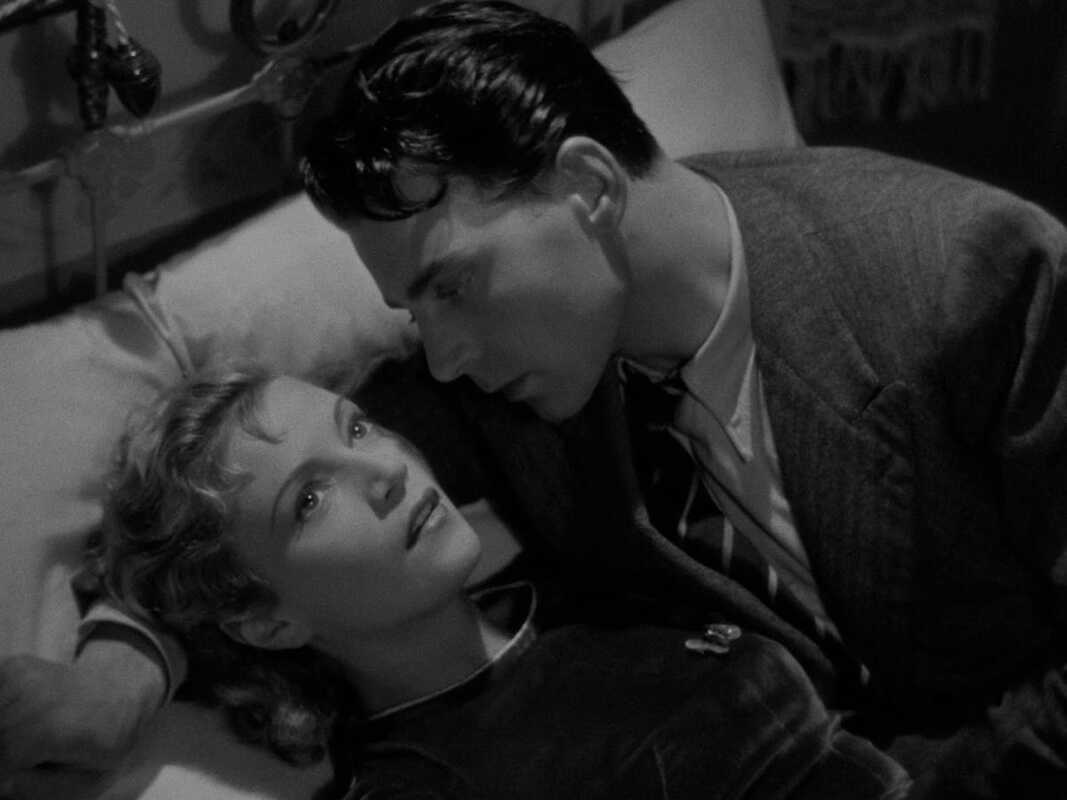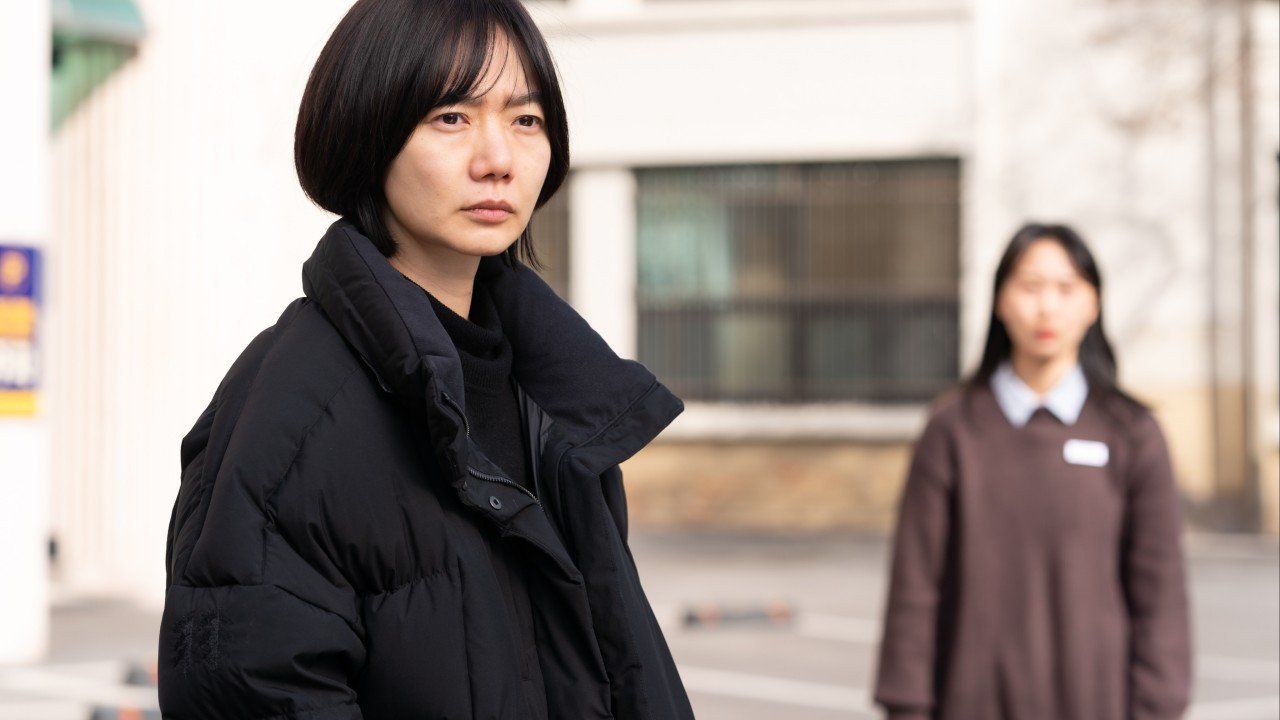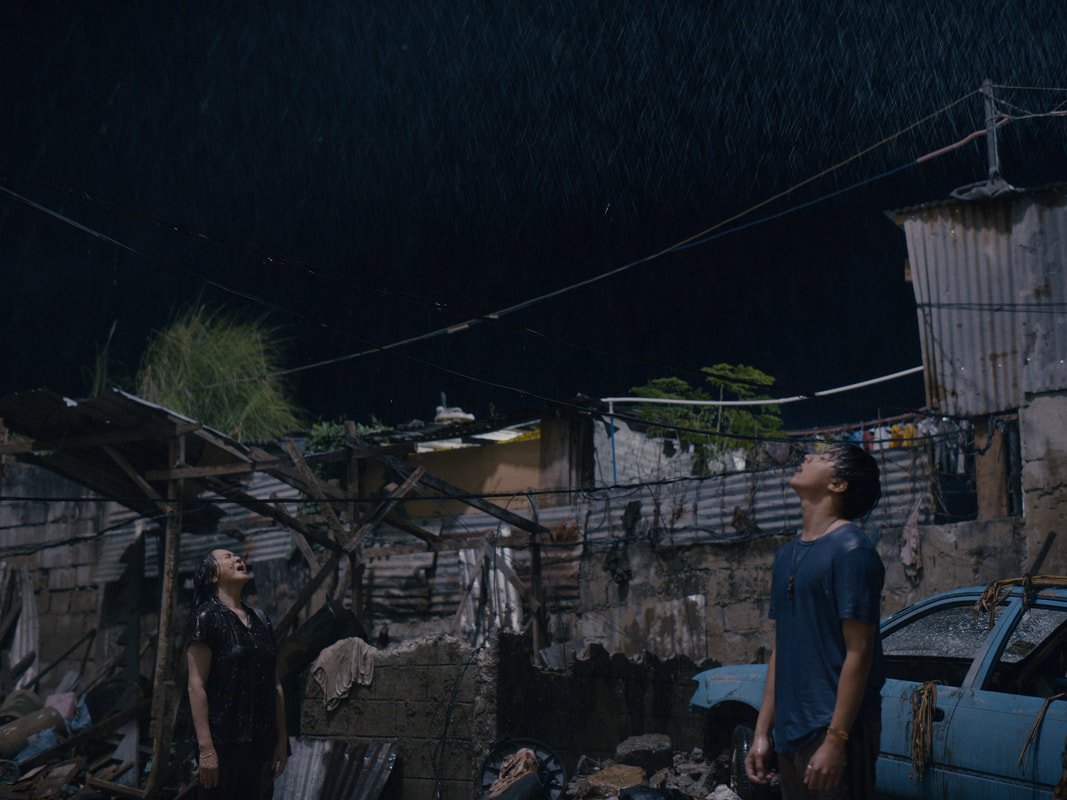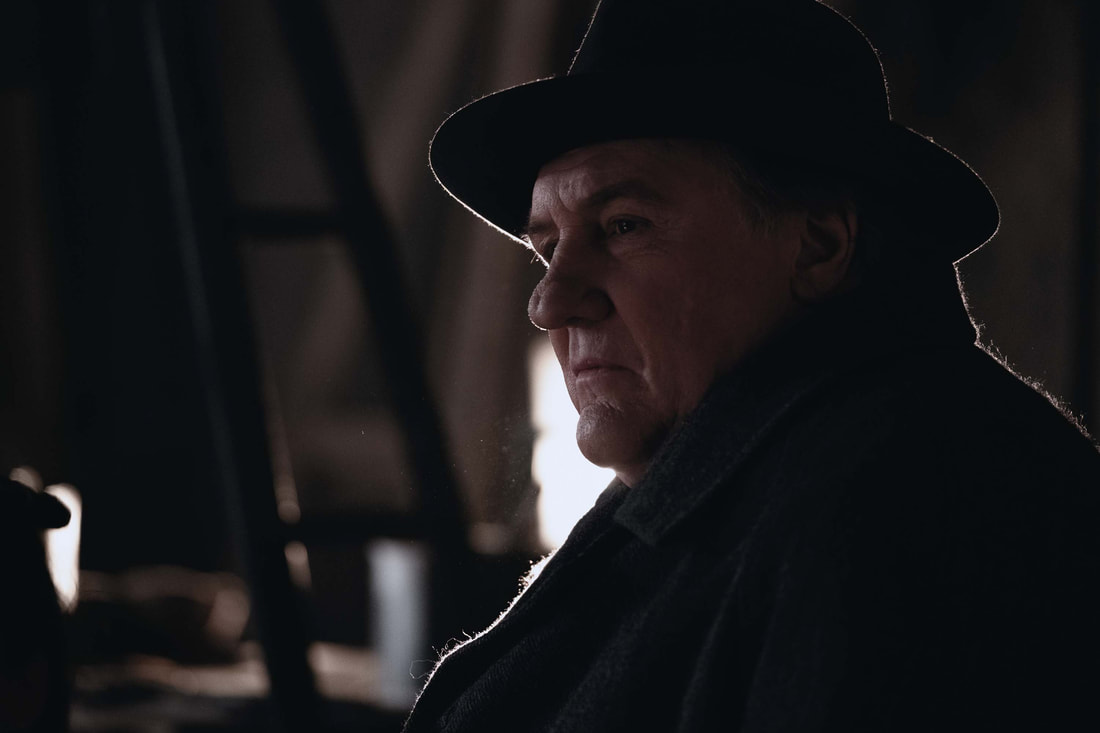|
Review by Sean Boelman
One of the best things that the Criterion Collection does is bring historically significant cinema that was once largely unavailable to the forefront. With a new 2K restoration available for the first time on Blu-Ray in the United States, Marcel Carné’s Hotel du Nord is a heart-crushing romance that any cinephile should be glad to have on their shelf.
The film follows the guests of a hotel in the low-income part of Paris as a young couple is torn apart by a suicide pact gone wrong. For some reason, the movie is billed on IMDb as a comedy, but don’t believe it. It’s actually a very depressing film — and while viewers are unlikely to finish the movie feeling good, that doesn’t make it any less of an essential watch. Based on a novel by Eugène Dabit, the film uses its sometimes melodramatic storylines to explore themes that were then very timely about the plight of the French working class. And yet, while the movie was specifically made as a response to the zeitgeist of the 1930s, there are several aspects of its story that still ring true today. Like many of Carné’s films, Hotel du Nord is an essential piece of cinema history in the movement that was poetic realism. With his contemporaries including Jean Renoir and Pierre Chenal, Carné was shining a light on the social issues of the time, albeit with a lens that has a very longing, almost fantastical view of life.
In the movie, audiences will see the star-crossed lovers’ plight and be absolutely heartbroken by the tragic romance that follows. It’s a classically trope that is virtually as old as literature itself, peaking in popularity with Shakespeare but standing the test of time thanks to its emotional resonance.
Much of the acting in early French cinema is theatrical in nature, and that is also the case here. The emotions on display from all involved, particularly lead actress Annabella, is exaggerated and grand in nature. But given the lens through which Carné is making the film, it’s a perfect fit for what he intends to accomplish. The bonus features on this Criterion Edition are led by a new conversation between iconic modern French filmmaker Jean-Pierre Jeunet and journalist Philippe Morrison. The disc also includes a making-of program from 1972 and a 1994 documentary on the life and career of Marcel Carné. Hotel du Nord is a quietly influential work of French cinema, and while its depressing tone can make it hard to watch at times, it’s something that cinephiles need to see. The new restoration is absolutely gorgeous on Blu-Ray, so you should absolutely pick this edition up. The Criterion Collection edition of Hotel du Nord is available August 23.
0 Comments
By Dan Skip Allen The Cinequest Film Festival champions filmmakers from different backgrounds with unique visions. Based out of San Francisco, the festival showcases films from all over the world. There are loads of narrative films, documentaries, and shorts, many of which deal with the human condition. After a couple years of virtual editions, the festival is returning to an in-person format from August 16-29. Here are some films playing in the festival that we recommend you check out! LinoleumLinoleum takes place in Fairview Heights, where the lead character Cameron Edwin (Jim Gaffigan) hosts a children's science show, a la Bill Nye the Science Guy, called "Above and Beyond." He is married to Erin (Rhea Seahorn, Better Call Saul), who sometimes helps him on the show but works at a science & space museum in town. They have a daughter named Nora (Kathryn Nacon) who goes to a private high school, but she doesn't fit in. She meets a boy in school, but he's the son of her father's rival. When a rocket lands in Gaffigan's backyard, he decides it's time for a change in his own life. This film is trying to say something about motherhood, parenting, and how parents interact with their children. It uses some weird ways to do this, but they work in an odd way. It wasn't easy to be a parent in the '80s or today, for that matter. Director Colin West creates a very existentialist film but uses the weird things going on in the movie to tell a straightforward story. You Resemble MeYou Resemble Me deals with two Sisters, Mariam and Hasma, that look alike. It's a French film, subtitled, but the girls and their families are Moroccan. Their mother is abusive, so the girls get out and run away. They live on the streets in Paris, France, but the girls get taken to child services. Each one is put into different separate homes. Hasma runs away from their foster parents and goes back home, but her mother doesn't want her anymore. Now she's an adult on her own, and she's struggling to make a life for herself, and she reaches out to her cousin, who's a terrorist in Syria, Films about terrorism aren't easy to digest. This film puts the viewer in the first person aspect of how a downtrodden life can lead to a life of terrorism. Terrorists prey on struggling Muslims to get them to do their bidding. This happens with any religion, though. Catholic, Protestant, or Baptist. They see weakness, loneliness, and anger and direct those emotions into getting their bidding. The writer/director Dina Amer captures this lifestyle perfectly. It's a shame that people are preyed on in this way. This film might not be for everybody, but it was an eye-opening look at how things that happened in this film come about. What We Do NextWhat We Do Next takes place in New York City, around Washington Heights, and follows an ensemble of characters. One of the lead characters is Sandy James (Karen Pittman), a city councilwoman and career politician. Another is Paul Fleming (Corey Stoll), a financier of 500 hundred dollars used to buy a gun. The third character is Elsa Mercado (Michelle Veintimilla), who murdered her father who was molesting her, and went to prison for 16 years but got out. Sandy and Paul try to help Elsa when she gets out, but there is a miscommunication involving what the money would be used for. It's not as a down payment for rent. Now she is blackmailing them for a job making 75,000 dollars a year. Stephen Belber shapes this film in seven parts, but it's more like a stage play than a movie. It's like a three-man play set in this area of New York. As a dramatic piece about politics and crime and punishment, it works perfectly. As a film, it drags, and the conversations seem at times like they are going nowhere until someone changes the subject or the stage changes to the next one. The acting is fine by all three leads, but I feel they forced the issue too much to be as effective as it could be. On a personal note, politicians can help family members in need after committing a crime, but it's not generally this dramatic. Velvet pushes the envelope a little too far for my liking. JuniperA young woman, Mack (Madison Lawlor), leaves home to spend time alone at a secluded cabin after her sister's death. Unexpectedly, her friend from childhood, Alex (Decker Sadowski), and her college roommate Dylan (Olivia Blue) show up to console her in a time of need. And then a couple of guys, one the brother of Alex, show up as well, making it five people at the cabin. The director Kathrine Dudas brings these people together so they can work out their differences and grieve in a way that's not normal for most people. The drama between the characters seems forced, and the acting doesn't seem genuine. The location is fine, but the overall execution of the story and characters seemed off. They didn't seem authentic, and neither did the entire situation. Freedom's PathA Union soldier, William (Garren Howell), gets scared off of war and decides to flee the fight. After an injury, he gets found by a young slave, Kitch (R.J. Cyler, Me and Earl and the Dying Girl), who brings him into his life and introduces him to his family. Inexplicably, they become friends. They are helping out on the Underground Railroad. First, they must avoid men trying to capture and kill them, led by Silas (Ewen Brenner). Kitch's grandmother Caddy (Carol Sutton), teaches them her ways about life and the kitchen.
Writer/Director Brett Smith captures the world of the 1800s South perfectly. It's no 12 Years a Slave, but it is an authentic, true look at the South during that time in our country. The cast is very good, and the cinematography is beautiful to look at. It's a shame people of different races can't seem to come together today to form a bond in hard times. Hopefully, more people will watch this film and see how life can change if you give someone different than you a chance.
By Sean Boelman
Fantasia is known as one of if not the single best genre festivals in the world, so cinephiles both local to Montreal and across the world are coming together to celebrate the best in weird and niche cinema that the year has to offer. With a lineup that is diverse as ever, the 2022 edition of the festival has returned to an in-person-only format after a virtual edition in 2020 and a hybrid one in 2021.
We at disappointment media are excited to again be providing remote coverage of the festival in its 26th year. As we are able to screen some of the films from the lineup, we will continue to bring you our brief thoughts here, so make sure to keep an eye on this page for more updates. Next Sohee
Fresh off its debut at the Cannes Film Festival, the Korean film Next Sohee now made an appearance at Fantasia where it is a highlight among this year’s Asian showcase. The film is carried by a powerhouse performance by Kim Si-Eun as a young worker in a call center whose job causes a tremendous amount of emotional pressure on her. It’s a very depressing, sympathetic film, and while the second half pivots in a way that is slightly less compelling, July Jung’s sophomore feature is still wonderful.
Whether the Weather Is Fine
The Filipino film Whether the Weather Is Fine has been touring the festival circuit since last fall to a great deal of acclaim. Carlo Francisco Manatad’s film, set in the wake of Typhoon Haiyan, is a slice-of-life film that has a lot of potential but ends up feeling a bit underdeveloped. Daniel Padilla, Charo Santos-Concio, and Rans Rifol make this a solid three-hander, but it is missing the sense of urgency — emotional or otherwise — that would have made this really powerful.
Maigret
Led by acclaimed French actor Gérard Depardieu as the legendary eponymous detective created by author Georges Simenon, Maigret is a brisk ninety-minute mystery. And while the film is certainly short enough to not be dull, the mystery isn’t all that compelling or unpredictable. Depardieu’s performance is the main reason to watch the movie, and while this story itself might not be very interesting, it shows a lot of potential should there be further adaptations of the detective’s other cases.
|
The Snake HoleRetrospectives, opinion pieces, awards commentary, personal essays, and any other type of article that isn't a traditional review or interview. Archives
June 2024
Categories
All
|
|
|
disappointment media
Dedicated to unique and diverse perspectives on cinema! |

